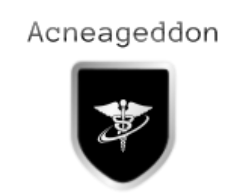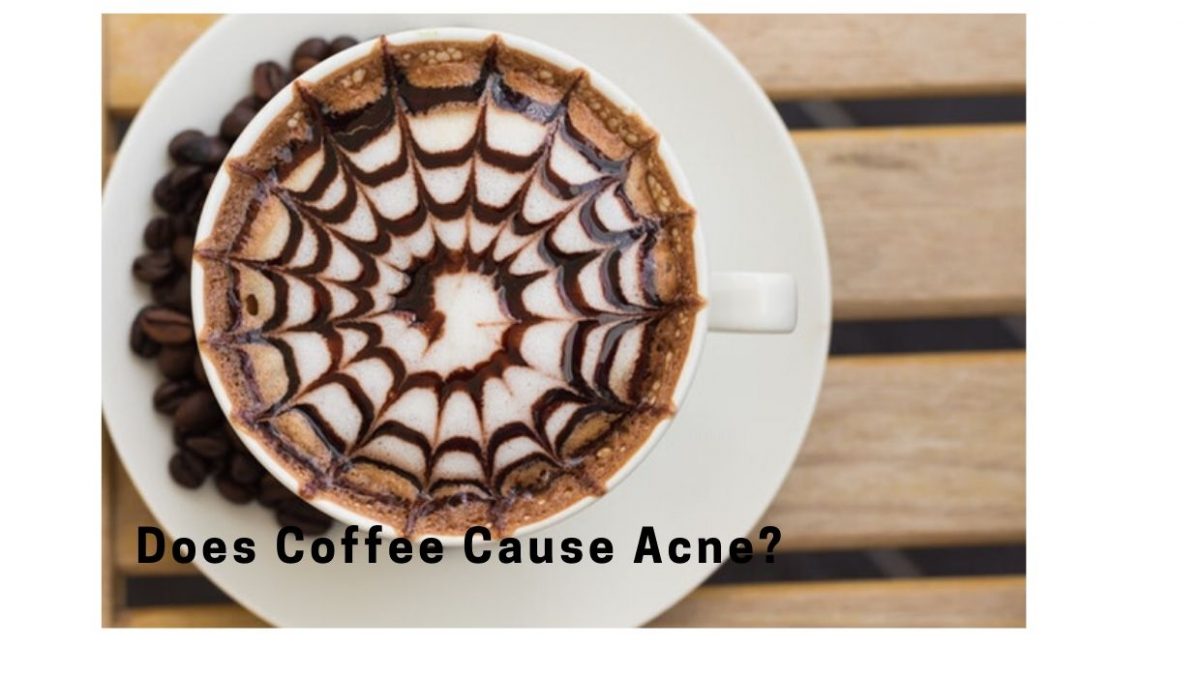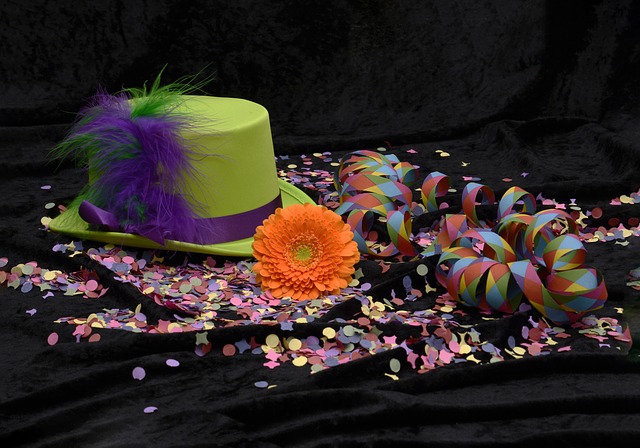The sweet release of coffee
Before we can answer the question: does coffee cause acne, we have to take a wide view and look at several angles.
We all have routines and rituals that start the day. For some, a cup of coffee is an outright necessity, mandating almost obsequious dependence. The smell, the intoxicating aroma that lures the user in, is worthy of worship. How many times have you bleak, weary eyed souls, staggered out of bed, belly crawled along the floor, seeking reproach from your slumber, in the hopes that a steaming pot is brewing at the end of your miserable journey?
Unless you have a butler or maid, or someone that approaches this approximate skill set, then you probably have to make it yourself or stomach the kind made by what ever type of creature you cohabit with (pets not included). Either way, an almost unholy banshee of a monster is craving that first sip to re-chain the savage beast and welcome the embrace of civilization.
I theorize that modern society would fall back a thousand years into a second dark ages the day coffee or its equivalent were banished from our existence. Maybe tea could fill the gap, but that would be a pretty wide chasm, requiring quick thinking or some mad sick run on energy drinks and hyper-caffeinated products. Ah, there’s the rub. Caffeine. It’s not the coffee or the ritual that goes with it that has us so ensnared, but the caffeine– the juice that fuels the engine of society.
Designing a study for coffee and acne
Well, what does this have to do with acne? I’m glad you asked. We know the caffeine can impact acne, but does coffee cause acne? If only it were simple. Like most nutritional studies, parameters, variables and setups can provided mixed results at best. Why? Let’s look at trying to conduct a study about coffee, in general, let alone how it relates to acne.
Coffee is consumed by a varied cross section of people. Not everyone drinks it everyday, though many do. Not everyone drinks the same amount, either. Many of the people that drink coffee may also have higher amounts of alcohol consumption (hangovers, limited restful sleep, etc.), smoke cigarettes/vape because nicotine and coffee seem like such a perfect partnership for those seeking stimulation. The problem is that some of these chemicals (namely nicotine) can altar or affect how the body removes caffeine and thus affect the duration of its effects. [1], [2] Simple, no?
It’s not to say that everyone that abstains is some teetotaling, nutritional purist, but realistically, how many people do you know that smoke, consume alcohol to excess or have some other health vice drink coffee? Like a hell of a lot, right?
Random thought splice to impart
When I go off on any ills of coffee, I’m reminded of this funny scene in the movie Troll 2. Apparently, the coffee is no bueno in Nilbog. This is some top shelf trolling, if I do say so.
Ok, now back to our regularly scheduled rant: does coffee cause acne?
Once more, does everyone drink their coffee the same way? Nothing added? Yeah, right. Coffee and cream and sugar and butter and yeah, well, you see where I’m going. Also, is every blend of coffee the same? Hardly.
There’s such a wide variance of type, blend, roast, not to mention organic vs. non-organic. How do you account for the additives, containments and pesticides for the varied brands and types? Organic is better because it hasn’t been sprayed with a swimming pool of pesticides and fungicides [3], but that leaves the problem of having to deal with the possibility of other contaminants.
Post and pre-production coffee may be ripe with issues from everything to storage, drying and re-wetting, any which may affect mold with the result being mycotoxins like Aflatoxin-B and Ochratoxins. Pick your poison, right? Though this might not be all that major of an issue as this site does an excellent job of addressing some of these concerns. [4]
The big takeaway
So with all those variables and more, try to design a study, any study, that accounts for them and gives a consistent result from a large enough sample size. Remember, many of these studies are on the low end of sample size with varying duration (days to months or more), which makes many of there results statistically suspect. Increasing sample sizes cost beaucoup money and without proper backing for multiple rounds of trials, the science can be subordinate to the funding source. This is only a partial amount of why research studies can give confounding and conflicting results.
The history of acne and diet: studying the studies
Before I break into a 10,000 word spiel about biochemical reactions and hormone interactions, let’s look at the history of diet and acne research. The following study attempts to unwind decades of research, some going back over 130 years. [5] With that kind of timespan, it’s easier to see the twisting turns and degrees of concern in regards to acne and the hunt for its causes in diet.
One thing you’ll notice is how little, if any, of these studies dealt with the affects of coffee and caffeine on acne. Naturally, I assume it’s because all you good teenagers and young twenty-somethings have failed to avail yourselves of the ravages of the devil’s brew and so would pose a needless variable not worth studying.
Glycemic load/glycemic index
My curiosity was piqued with all the studies about glycemic load/glycemic index (GL/GI) that were conducted in regards to acne. It seems that researchers many decades ago noticed a strange occurrence. When they studied native populations of aboriginal peoples or islanders, few, if any, had acne. This was probably one of the main impetuses for linking diet to acne in the first place. [6], [7], [8], [9], [10], [11], [12]
The GI is how the effects of carbohydrates (sugars, starches, dairy etc) on blood glucose are measured. [13] The GL is a combination of the amount and the result of the carbohydrate on blood glucose. [14] A diet with a high GL/GI would increase the body’s resistance to insulin, which could set of a chain of hormonal responses from the body much akin to a toppling of dominoes. [15]
When the body’s resistance to insulin is increased, the response by the endocrine system is to activate IGF-1 (Insulin Growth Factor-1). IGF-1 is a controlling factor for cellular growth and is responsible for follicular growth. In addition, another hormone called androgen is increased in intensity because IGF-1 magnifies its bioavailability. The hormone androgen has many effects, the chief of which, for our purposes, is the promotion of sebum production and secretion, which have been linked to acne creation. [16], [17]
Coffee, caffeine and acne control
This is where things get tricky and start going off the rails. Remember what I said earlier about designing a study to measure coffee. All you want to know is does coffee cause acne?
You would think it neigh impossible to design a study to such degree that a dearth of studies seems assured. Well, all of those factors and variance can’t be accounted for but with the type of funding and the commerce at stake, the march of progress remains unhindered.
Does coffee cause acne? The studies say what?
There have been studies dealing with coffee. Loads of them. [18] The only problem is the consistency of the results.
The results seem to indicate that for short term use, Coffee and caffeine elevate blood sugar levels and increase insulin resistance.
Though this is somewhat less so when the coffee studied is decaffeinated, leading some research to conclude that caffeine may be the culprit in regards to the negative effects.
On the flip side, long term studies have shown the exact opposite—lower blood sugar levels and decreased insulin resistance. This goes for both caffeinated and decaffeinated coffee.
What this indicates is that initially there’s a spike in blood sugar, but as time advances forward, the body adjusts, compensates and ultimately utilizes the coffee and caffeine to help lower blood sugar levels. Theories abound as to why, but nothing concrete has been established.
Don’t go throwing a ticker tape parade in your coffee cupboard just yet
What these studies seem to indicate is the potential for problems. Coffee may not be the real issue in regards to the blood sugar (short term excluded), but few people drink decaf. It’s not the same. We all know it, too.
In addition, there’s a few more issues to contend with that may effect acne control outside of the insulin resistance issue.
Since non-organic coffee is bathed in pesticides as described earlier, there’s a bit of controversy as to how much ends up being lost during the roasting, and what, if any, actually gets further absorbed into the beans during cooking?[19] This is important because pesticides have been shown to have an effect on gut flora, not to mention negative effects on the endocrine system described earlier. [20], [21]
There’s been some speculation that ochratoxins may be responsible for some of the effects studied in regards to coffee. Once more, they are difficult to eliminate and survive autoclaving for 3 hours. [22]
Also, Coffee has been shown to inhibit absorption of iron and decrease vitamin B circulating in the body. [23], [24] Both of which can impact acne control.
Coffee facial scrub
In addition to all the topics covered, I’d take a cautious wait and see approach to using coffee for a facial skin acne scrub, which I know is trending and popular. The potential problems with other ingredients outside of the coffee itself is why I say that.
Conclusion
Can coffee cause acne?
I wish it were as easy as definitively saying coffee causes acne or it doesn’t. While the studies listed seem to clear coffee on the one hand, they also open up the possibility for other outlets in which it could affect the body in regards to acne on the other. The dearth of studies linking increased acne vulgaris occurrence to coffee is daunting. It’s only through indirect methods can we elucidate the means and mechanisms for which it might operate.
In the end, it’s always best to listen to your body. Do you see increased inflammation or flare up of acne around the consumption of coffee? Without definitive medical answers, let our bodies guide the way.
Work cited:
[1] https://en.wikipedia.org/wiki/Caffeine
[2] “Actions of caffeine in the brain with special reference to factors that contribute to its widespread use.” Fredholm BB, Bättig K, Holmén J, Nehlig A, Zvartau EE (March 1999).Pharmacological Reviews. 51 (1): 83–133. http://pharmrev.aspetjournals.org/content/51/1/83.long
[3] “Multi-residue method for the analysis of pesticides in Arabica coffee using liquid chromatography/tandem mass spectrometry.” Diaz, Claudia M., et Al (June 2013) Food Additives & Contaminants: Part A, 30: 7, 1308-1315, DOI: 10.1080/19440049.2013.801088
[4] https://authoritynutrition.com/the-mycotoxins-in-coffee-myth/
[5] Acne: The Role of Medical Nutrition Therapy. Burris, J., Rietkerk W., Woolf K., (March 2013) Academy of Nutrition and Dietetics, Vol. 113, Issue 3, 416-430, DOI: http://dx.doi.org/10.1016/j.jand.2012.11.016 http://jandonline.org/article/S2212-2672(12)01923-5/fulltext
[6] Skin diseases in Kenya (A clinical and histopathological study of 3,168 patients). Verhagen, A.R., Koten, J.W., Chaddah, V.K., and Patel, R.I.Arch Dermatol. 1968; 98: 577–586 http://jamanetwork.com/journals/jamadermatology/article-abstract/530801
[7] Skin diseases in Zambia. Ratnam, A.V. and Jayaraju, K. Br J Dermatol. 1979; 101: 449–453 http://onlinelibrary.wiley.com/doi/10.1111/j.1365-2133.1979.tb00025.x/abstract;jsessionid=D257D03B1C2AFC16C07347BA7E481B73.f01t02
[8] The age distribution of common skin disorders in the Bantu of Pretoria, Transvaal. Park, R.G. Br J Dermatol. 1968; 80: 758–761 http://onlinelibrary.wiley.com/doi/10.1111/j.1365-2133.1968.tb11941.x/full
[9] When the Eskimo comes to town. Schaefer, O. Nutrition Today. 1971; 6: 8–16 http://journals.lww.com/nutritiontodayonline/Citation/1971/11000/When_The_Eskimo_Comes_To_Town_.3.aspx
[10] Necropsies on Okinawans: Anatomic and pathologic observations. Steiner, P.E. Arch Pathol. 1946; 42: 359–380
[11] The acnes: Clinical features, pathogenesis and treatment. Cunliffe, W.J. and Cotterill, J.A. in: A. Rook (Ed.) Major Problems in Dermatology. WB Saunders Co, Philadelphia, PA; 1975: 13–14
[12] Acne vulgaris: A disease of Western civilization. Cordain, L., Lindeberg, S., Hurtado, M., Hill, K., Eaton, S.B., and Brand-Miller, J.Arch Dermatol. 2002; 138: 1584–1590 http://jamanetwork.com/journals/jamadermatology/fullarticle/479093
[13] Glycemic index of foods: A physiological basis for carbohydrate exchange. Jenkins, D.J., Wolever, T.M., Taylor, R.H. et al.Am J Clin Nutr. 1981; 34: 362–366 http://ajcn.nutrition.org/content/34/3/362.long
**Can coffee cause acne? While the link exists between coffee and skin health, it remains difficult to pinpoint a direct correlation. Is coffee bad for skin? The cascade of effects of coffee on skin are known through indirect channels listed in the article. What does coffee do to your skin? Read up about some of the effects in the subsequent studies listed.
[14] The metabolic syndrome and insulin-like growth factor-1 regulation in adolescent obesity. Attia, N., Tamborlane, W.V., Heptulla, R. et al. J Clin Endocrin Metab. 1998; 83: 1467–1471 https://academic.oup.com/jcem/article-lookup/doi/10.1210/jcem.83.5.4827
[15] Acute effect of meal glycemic index and glycemic load on blood glucose and insulin responses in humans. Galgani, J., Aguirre, C., and Diaz, E. Nutr J. 2006; 5: 22 https://nutritionj.biomedcentral.com/articles/10.1186/1475-2891-5-22
[16] Correlation of facial sebum to serum insulin-like growth factor-1 in patients with acne. Vora, S., Ovhal, A., Jerajani, H., Nair, N., and Chakrabortty, A.Br J Dermatol. 2008; 159: 990–991 http://onlinelibrary.wiley.com/doi/10.1111/j.1365-2133.2008.08764.x/abstract
[17] Acne: The effect of hormones on pathogenesis and management. Shaw, J. Am J Clin. Dermatol. 2002; 3: 571–578 https://www.ncbi.nlm.nih.gov/pubmed/12358558?dopt=Abstract
[18]https://authoritynutrition.com/coffee-blood-sugar-and-diabetes/
[19] Behavior of pesticides in coffee beans during the roasting process. Sakamoto K, Nishizawa H, Manabe N. Shokuhin Eiseigaku Zasshi. 2012;53(5):233-6. https://www.ncbi.nlm.nih.gov/pubmed/23154763
[20] Gut microbial degradation of organophosphate insecticides-induces glucose intolerance via gluconeogenesis. Velmurugan, Ganesan, et Al. Genome Biology201718:8 https://doi.org/10.1186/s13059-016-1134-6 https://genomebiology.biomedcentral.com/articles/10.1186/s13059-016-1134-6
[21] http://m2b.lbl.gov/microbiome-adaptation-in-response-to-environmental-challenges/
[22] https://pubchem.ncbi.nlm.nih.gov/compound/ochratoxin_a#section=LogP
[23] Inhibition of food iron absorption by coffee. Morck TA, Lynch SR, Cook JD. Am J Clin Nutr. 1983 Mar;37(3):416-20. https://www.ncbi.nlm.nih.gov/pubmed/6402915
[24] Coffee consumption and circulating B-vitamins in healthy middle-aged men and women. Ulvik A, Vollset SE, Hoff G, Ueland PM. Clinical Chemistry 2008 Sep;54(9):1489-96. Doi: 10.1373/clinchem.2008.103465. http://clinchem.aaccjnls.org/content/54/9/1489.long
Caffeine and acne connections abound, but does caffeine cause acne? I believe the reviews of some of the preceeding studies indicate a closer link that many realize.
You can read the next article here!





I think this is among the most important info for me. And i’m glad reading your article. But should remark on few general things: The website style is perfect and the articles are really excellent : D. Good job, cheers
You’ve made my day, Borvest! Thank you.
Hi, I do believe this is an excellent web site. I stumbledupon it. 😉
I am going to revisit yet again since i have book marked it. Money and freedom is the greatest way to change, may you be rich and continue to help others.
Woah! I’m really digging the template/theme of this blog. It’s simple, yet effective. A lot of times it’s very hard to get that “perfect balance” between user friendliness and appearance.
I must say that you’ve done a great job with this. Additionally, the blog loads very quick for me on Chrome.
Outstanding Blog!
Thank you for the many kind words, Amee! All the best
Terrific work! This is the type of info that should be shared around the web.
Disgrace on Google for now not positioning this publish higher!
Come on over and talk over with my website. Thanks =)
Excellent post. very informative. I wonder why the other specialists
of this sector do not notice this. You must proceed with
your writing. I am sure you’ve a great readers’ base already!
Woah! I’m really digging the template/theme of this website.
It’s simple, yet effective. A lot of times it’s very difficult
to get that “perfect balance” between usability and visual appeal.
I must say that you’ve done a very good job with this.
Also, the blog loads extremely fast for me. Superb Blog!
Wish the caffeine acne link wasn’t so.
Hi there to every single one. It’s truly a good for me to pay a visit this website. It contains priceless
Information. Acne control is hard enough but the fact that coffee can cause acne only makes it that much more so.
Greetings, I do believe your site could be having browser compatibility issues.
Whenever I take a look at your blog in Safari, it looks fine; however, if opening in Internet Explorer, it’s got some overlapping issues. I just wanted to provide you with a quick heads up! Apart from that, fantastic site!
Looking into it, Gretta. Thanks.
Nice post. I learn something totally new and challenging on blogs I stumble upon everyday.
It’s always exciting to read content from other authors and use something from other sites.
The fact that acne can/may cause acne sucks, though.
Hi! I’ve been following your blog for a long time now and finally got the courage to go ahead and give you a shout out from Austin Texas! Just wanted to tell you keep up the good work!
Thanks, Russel. I hope to have more articles up soon.
I drink sooo much coffee. Going to have to rethink that. Any suggestions, apart from the article?
I generally drink green tea in the morning for multiple reasons. It doesn’t have that much in the way of caffeine, so if you are looking to blast off, you’ll need to look carefully (ingredients) at high caffeine alternatives and find some that have a healthy blend. You don’t want to trade one problem (low caffeine alternative) for another (acne causing side-effects).
I do agree with most of the concepts you have presented in your post. They are very convincing and will definitely work. Nonetheless, the posts are very short for beginners. Could you please lengthen them? The more info, the better. Thanks.
I understand. Some people want concise, others want a compendium. The balance lies somewhere in between. Thanks for the feedback.
I love coffee but hate acne. Will be switching to tea or going cold turkey on caffeine. Thanks for inspiring.
All the best, Margarita.
Nice post. I’ve checked this blog all over and I’m impressed! Extremely useful information specifically the last post 🙂 I treasure such information. I was looking for this particular info for a long time. Thank you and good luck.
You’re welcome.
Generally, I do not learn useful info on blogs. However, I would like to say that this write-up forced me to try and do so! Your writing style has captivated me. Thank you. Quite nice post.
Thanks, Veda.
Oh my goodness! Amazing article dude! I knew about some of the toxin issues associated with certain types of coffee but this post really opened my eyes. I’ll be reading through your work cited section for a minute. Thank you.
Pleasure, Winfred. This article took some digging. I did the best I could with the sources because there’s so many industry sponsored studies that have to be accounted for and shifted through. It may not be cut and dry as to if coffee causes acne. For some people, it definitely creates major acne stress by aggravating hormones.
Pleasure, Winfred. This article took some digging. I did the best I could with the sources because there’s so many industry sponsored studies that have to be accounted for and shifted through. It may not be cut and dry as to if coffee causes acne. For some people, it definitely creates major acne stress by aggravating hormones.
I couldn’t refrain from commenting. Very well written!
Thanks, Gottesman!